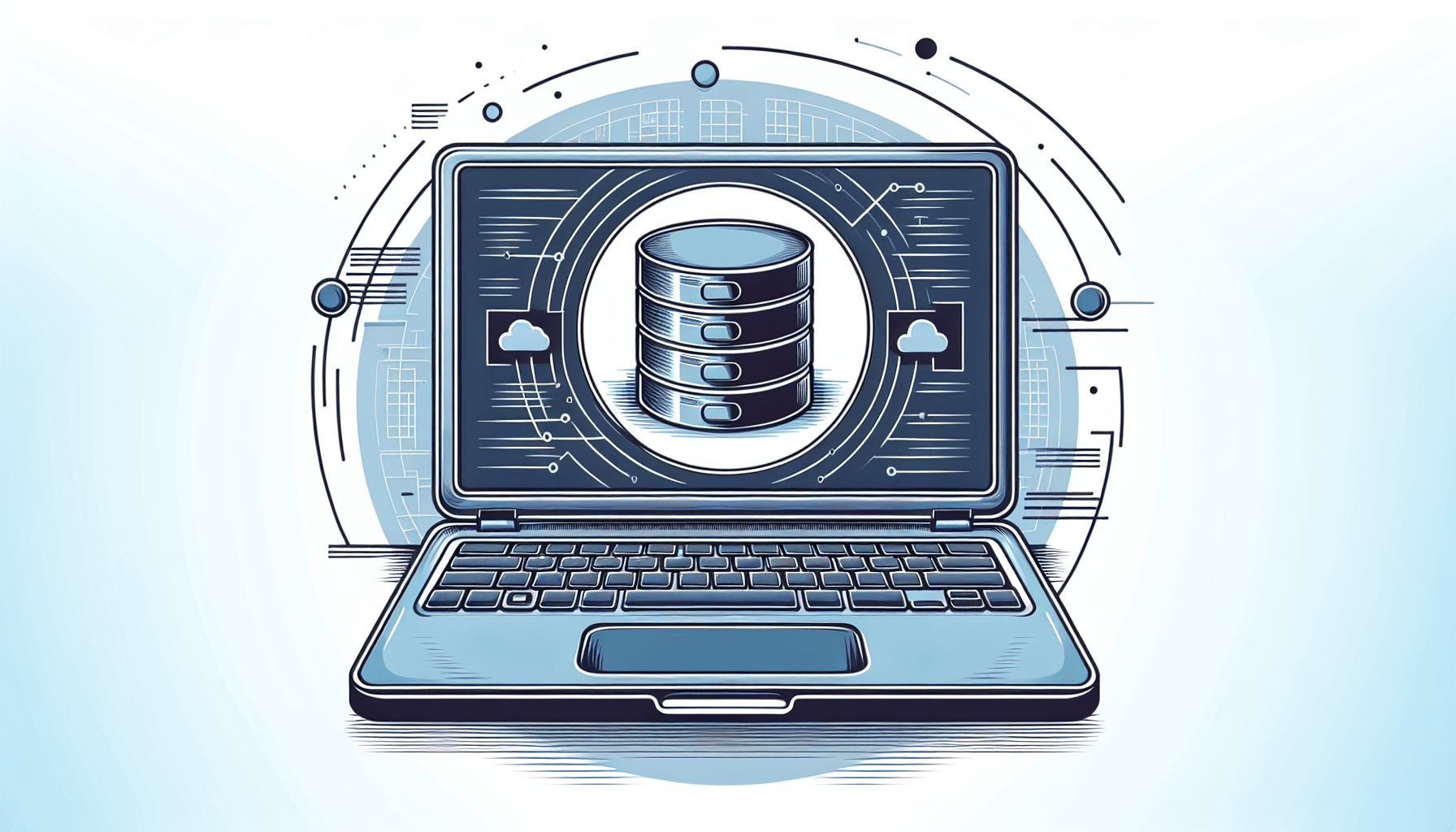Introduction
Are you looking to optimize your e-commerce website’s server management? In this article, you will learn about the best strategies for effectively managing servers for e-commerce websites. Whether you are a small business owner or an enterprise, these tips will help you improve the performance and reliability of your online store.
Importance of Efficient Server Management
Efficient server management is crucial for e-commerce websites to ensure fast loading times, reliable uptime, and secure transactions. By properly managing your servers, you can provide a seamless shopping experience for your customers and avoid potential security risks.
Ensuring that your e-commerce website is running on a well-maintained server will help you maintain a competitive edge in the online marketplace.
Understanding Your Server Needs
Before implementing any server management strategies, it is essential to understand your e-commerce website’s specific needs. Consider the traffic volume, peak hours, and resource-intensive features of your website to determine the ideal server configuration.
By analyzing your server requirements, you can make informed decisions about capacity planning, resource allocation, and scalability options. This will help you optimize your server performance and avoid unnecessary downtime or slowdowns during peak shopping seasons.

Choosing the Right Hosting Provider
Selecting the right hosting provider is key to effective server management for e-commerce websites. Look for a provider that offers reliable uptime guarantees, robust security features, and scalable hosting plans to accommodate your growing business needs.
It is also important to consider factors such as server location, bandwidth limits, and customer support services when choosing a hosting provider for your e-commerce website. Conduct thorough research and read customer reviews to ensure that you select a reputable and trustworthy hosting company.
Compare Hosting Plans
To find the best hosting provider for your e-commerce website, compare hosting plans from multiple providers. Look for features such as SSD storage, dedicated IP addresses, SSL certificates, and automatic backups to ensure optimal performance and security.
Consider your budget, technical requirements, and growth projections to select a hosting plan that meets your needs. Remember to factor in additional costs such as domain registration, add-on services, and renewal fees when comparing hosting plans.
Consider Managed Hosting Services
For hassle-free server management, consider opting for managed hosting services that offer proactive server monitoring, security updates, and technical support. Managed hosting providers often handle routine server maintenance tasks, allowing you to focus on growing your online business.
While managed hosting services may come at a higher cost, they can provide peace of mind knowing that your servers are being professionally managed. Evaluate the benefits of managed hosting services and determine if they align with your server management priorities.
Implementing Server Security Measures
Securing your e-commerce website’s servers is essential to protect customer data, prevent cyberattacks, and maintain trust with your online customers. By implementing robust security measures, you can safeguard sensitive information and prevent unauthorized access to your server.
Make sure to regularly update your server software, install security patches, and configure firewall settings to reduce security vulnerabilities. Implement encryption protocols, SSL certificates, and multi-factor authentication to enhance the security of your e-commerce website and prevent data breaches.
Secure Data Transmission
To secure data transmission between your e-commerce website and customers, use secure socket layer (SSL) encryption. SSL certificates encrypt sensitive information such as credit card details, passwords, and personal data to protect it from interception by cybercriminals.
By enabling SSL for your e-commerce website, you can build trust with customers, improve your website’s search engine ranking, and comply with industry regulations. Choose a reputable SSL certificate provider and regularly renew your certificates to maintain secure data transmission.
Backup and Disaster Recovery Plans
In addition to server security measures, it is crucial to implement backup and disaster recovery plans for your e-commerce website. Regularly backup your website data, server configurations, and critical files to ensure that you can quickly recover in the event of a server failure or data loss.
Consider using cloud storage services, external hard drives, or offsite backup solutions to store backup copies of your e-commerce website. Test your disaster recovery plans periodically and update them as needed to ensure that you can restore your website’s functionality in case of emergencies.

Monitoring and Performance Optimization
Continuous monitoring and performance optimization are essential for maintaining the health and efficiency of your e-commerce website’s servers. By monitoring server metrics, identifying performance bottlenecks, and implementing optimization strategies, you can ensure that your website delivers a seamless shopping experience for customers.
Regularly monitor server uptime, response times, CPU utilization, and memory usage to detect any issues and prevent system failures. Use monitoring tools such as Nagios, Zabbix, or New Relic to track your server performance metrics and receive real-time alerts on critical events.
Load Balancing and Caching
To improve server performance and scalability, consider implementing load balancing and caching techniques for your e-commerce website. Load balancing distributes incoming traffic across multiple servers to prevent server overload and improve website responsiveness.
Cache static content, dynamic web pages, and database queries to reduce server workload, improve page load times, and enhance user experience. Use content delivery networks (CDNs), caching plugins, or server-side caching tools to optimize your website’s performance and minimize server resource usage.
Content Compression and Optimization
Compressing and optimizing content on your e-commerce website can significantly improve server performance and page load times. Enable gzip compression for text-based files, images, and scripts to reduce file sizes and accelerate data transmission between servers and web browsers.
Optimize images, videos, and JavaScript code to minimize load times, reduce bandwidth usage, and enhance website speed. Use image compression tools, lazy loading techniques, and minification plugins to streamline your website’s content and improve server efficiency.
Scalability and Resource Management
As your e-commerce website grows and attracts more customers, it is important to consider scalability and resource management strategies to accommodate increased traffic and demand. By planning for scalability, you can ensure that your servers can handle spikes in traffic and scale resources as needed.
Horizontal Scaling
Horizontal scaling involves adding more servers to distribute workload and handle increased traffic volumes. By horizontally scaling your e-commerce website, you can improve performance, reduce latency, and enhance fault tolerance to maintain a reliable shopping experience for customers.
Consider cloud hosting services, virtual private servers (VPS), or container technologies to facilitate horizontal scaling and resource allocation. Work with your hosting provider to configure auto-scaling solutions, load balancers, and distributed storage to support your e-commerce website’s growth.
Resource Optimization
Optimizing server resources is essential for maximizing performance, reducing costs, and minimizing downtime for your e-commerce website. Monitor server resource usage, identify bottlenecks, and optimize configurations to ensure that your servers operate efficiently and effectively.
Adjust server settings, allocate resources based on demand, and optimize application code to prevent resource wastage and improve server performance. Implement resource management tools, performance tuning techniques, and capacity planning strategies to optimize your server resources and enhance website reliability.
Conclusion
In conclusion, effective server management is essential for optimizing the performance, security, and scalability of e-commerce websites. By understanding your server needs, choosing the right hosting provider, implementing security measures, and monitoring performance metrics, you can ensure that your online store delivers a seamless shopping experience for customers.
Remember to continuously evaluate and update your server management strategies to adapt to changing business requirements and technological advancements. By following the best practices outlined in this article, you can enhance the reliability, speed, and efficiency of your e-commerce website’s servers and stay ahead of the competition in the digital marketplace.










